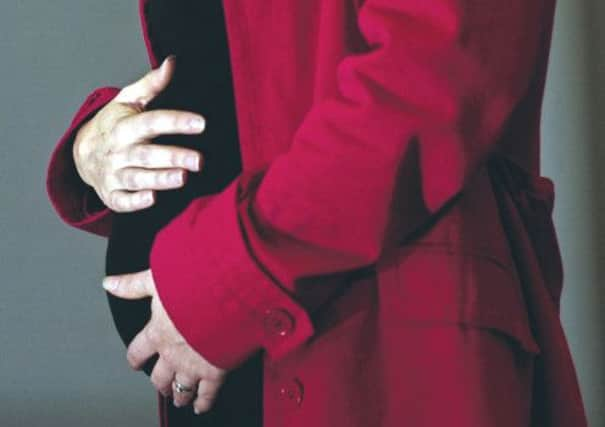Dani Garavelli: Fertility pressures too much


But to those who are just managing to get a foothold in their chosen profession, warnings that they should hurry up and procreate must be as welcome as their mother wailing: “But when are you going to give me grandchildren?” down the phone.
I mean, aren’t women under enough pressure, what with finding themselves on the losing side of the gender divide and being bombarded by images of unattainable beauty, without being told their ovaries are a much-plundered store cupboard whose supplies are running low?
Advertisement
Hide AdAdvertisement
Hide AdIt was bad enough when Kate Garraway launched the loathsome Get Britain Fertile campaign. There she was lecturing women not to delay reproduction in the interests of their career, while smugly nursing a fabulous job and not one but two perfect babies of her own. As if the mere thought that, at 44, some glamorous TV presenter might find it difficult to conceive for a third time would lead hundreds of thousands of women to jettison their ambitions and swap their contraceptive pills for ovulation kits. But at least you could dismiss Garraway as a publicity-hungry celebrity; this time round it’s doctors who are sounding the alarm bells and they’re quite emphatic.
Speaking at the British Science Festival last week, they said many women wrongly believe advances in IVF treatment mean they can safely delay having a family until later in life when, in fact, there is no way of reversing a decline in fertility. “Perhaps the most important message to get over is that the best cure of all is to have your babies before the clock strikes 12,” said Mary Herbert, professor in reproductive biology at Newcastle University. “I would be getting worried about my daughter if she hadn’t had a baby by the time she was 35.”
It’s difficult to argue with biology and for women who have a loving partner and a healthy bank balance, this kind of prompt may help. But for the vast majority, it’s just more busybodies telling them how to manage their uteruses. Those women who don’t want children because – shock, horror – they cherish their independence and are sick of all and sundry telling them they don’t know what they’re missing. The last thing they need is doctors joining in the chorus of disapproval. And those who want children, but are not in a position to have them, are hardly oblivious to the march of time. If their biological clocks aren’t ticking so loudly they drown them out, the warnings will only fuel their panic. Persuading women to give birth in the wrong circumstances is socially irresponsible, but we all know the more assiduously we pursue those circumstances – and particularly the right partner – the more elusive they become.
Though I’m not questioning the thrust of the doctors’ research, I’m not convinced most women do see IVF as an easy option. How can they when newspapers and magazines are heaving with stories of couples’ desperate attempts to conceive? Many of these couples invest emotionally and financially in multiple fertility treatments only to be disappointed. If some women appear to place their faith in it, it’s not because they don’t know it’s misplaced, it’s because they’re running out of options.
The irony is that when not haranguing older women to start reproducing, we are haranguing younger ones to stop, the sight of teenagers with prams is apparently abhorrent as the sight of thirty-somethings without them. Have babies. Don’t have babies. Will the pontificating ever stop? There appears, then, to be a ten-year window – from 25 to 35 – in which it is deemed socially and physically acceptable for women to get pregnant. But so much of modern life militates against meeting that deadline. It’s not just about ambition, though a woman who puts her career on the back-burner for children may end up bitter and resentful. It’s not just about the economic climate, though the number of young professionals who can afford to buy their own home seems in decline.
It’s also about finding the right person, a goal our frenetic lifestyles seem to make ever more difficult. The rise of the man-child hasn’t helped. The world seems to be full of blokes for whom Call of Duty is a shoot ’em up computer game rather than an exhortation to fatherhood. And why should they grow up? It’s not as if they’re bollocked for starting too early or too late. Able to walk away from an unplanned pregnancy and procreate into their 70s, they’re under no pressure.
Doctors’ concerns are based on hard statistics; in Scotland the proportion of women giving birth over the age of 35 has risen from 6 per cent to almost 20 per cent in the last 30-odd years. Those figures mask the misery of those who want to conceive later but find they can’t. Yet there’s a limit to how much experts should be trying to influence personal life choices. Most women who want, but are unable to have, children are already painfully aware of the emotional and physical hurdles which stand between them and pregnancy. Given that fertility campaigns can do nothing to remove those hurdles, they will always be less of a prod in the right direction for childless/child-free women than another stick with which to beat them. «
Twitter: @DaniGaravelli1